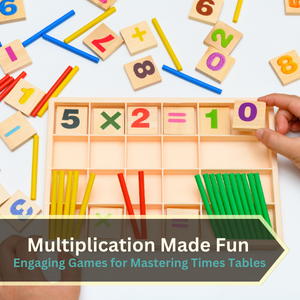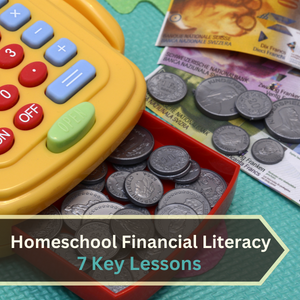Why Multiplication Games Are Effective in Teaching Math
Integrating games into teaching multiplication offers a unique and practical approach to learning. These multiplication activities make the process of memorizing multiplication tables not only enjoyable but also more impactful.
Benefits of Using Games for Teaching Multiplication
Games capture children’s attention and provide a context for learning that is both engaging and interactive. By incorporating multiplication activities into play, concepts that might otherwise seem abstract become tangible and relatable. This hands-on approach aids in better retention and understanding of multiplication facts.
How Games Make Learning Multiplication Tables More Enjoyable and Memorable
Through games, multiplication practice becomes an activity children look forward to rather than a chore. Games add a layer of excitement and competition, motivating students to engage more deeply with the material. The repetitive nature of gameplay also reinforces learning, making multiplication tables more memorable.
Top Multiplication Games for Different Grade Levels
Not all multiplication activities are created equal, and choosing games appropriate for your child’s grade level and learning stage is essential. Here, we’ll explore a range of multiplication games suitable for various grades.
Recommending Multiplication Games for Various Grade Levels
For younger students, simple games focusing on basic multiplication facts are ideal. As children progress, more complex games involving strategy and higher-level thinking can be introduced. These can include board games, card games, and digital games, each offering a unique way to engage with multiplication.
Highlighting How Games Can Be Adapted for Different Skill Levels
Many multiplication games are versatile and easily modified to suit different skill levels. For example, adding time constraints or mathematical operations can make a basic card game more challenging. This adaptability ensures that students remain challenged and engaged as they advance.
Creating an Array: A Hands-On Approach to Multiplication
Understanding the concept of an array is fundamental in learning multiplication. This hands-on approach helps students visualize multiplication and grasp its practical applications.
Explaining the Concept of an Array
An array is a way of organizing objects into rows and columns to illustrate multiplication problems. For example, a 3×4 array represents the multiplication sentence 3 x 4. This visual representation helps students understand that multiplication is essentially repeated addition.
Providing Ideas for Creating Arrays
Arrays can be created using a variety of everyday objects, such as buttons, lego bricks, or even fruits. Arranging these items into rows and columns corresponding to multiplication problems can be a fun and interactive way to practice multiplication. This activity reinforces the concept of multiplication and enhances fine motor skills and spatial reasoning.
Using Dice for Multiplication Practice: Roll and Multiply

Dice games are an excellent way to practice multiplication in a fun and dynamic way. These games can be played with a standard pair of dice and are perfect for quick and engaging multiplication practice.
Introducing Fun Dice Games for Multiplication Skills
One simple dice game involves rolling two dice, multiplying the numbers that come up, and then writing down or calling out the answer. Variations can include using dice with more than six sides for higher multiplication facts or incorporating additional rules to increase the challenge.
Visit our post on Integrating ‘LEFT, RIGHT, CENTER’ for Game-Based Learning and Play in Your Homeschool Curriculum for a great addition to your homeschool toolbox.
Tips on Using Dice to Practice Multiplication Facts
To maximize the benefits of dice games, encourage students to play regularly. This frequent repetition helps solidify their understanding of multiplication tables. Dice games can also be played in groups, adding a social element that can make learning more enjoyable.
Domino Multiplication: Turning a Classic Game into a Math Activity

Dominoes are not just for matching numbers; they can also be an excellent tool for practicing multiplication in a fun and engaging way.
Using Dominoes for Practicing Multiplication
Each domino can represent a multiplication problem, with the number of dots on each half as the factors. Children can multiply the numbers on each side and then find the product. This game reinforces multiplication skills and helps with quick mental calculations.
Offering Variations of the Game
You can introduce variations of the domino multiplication game to cater to different learning needs. For younger children, use dominoes with fewer dots to simplify the problems. For older students, challenge them with larger numbers or add a time element to increase the difficulty.
Online Multiplication Games: Learning in the Digital Age
Incorporating technology into learning, online multiplication games offer a modern approach to mastering multiplication tables.
Suggesting Online Multiplication Games
Many free and subscription-based online games make learning multiplication interactive and fun. These games often include colorful graphics, engaging storylines, and immediate feedback, which can motivate students.
- SplashLearn: Great online interactive math game for ages 5-11.
- Math Playground: This is targeted toward ages 6-13.
Discussing the Advantages of Digital Games
Online games can be accessed anytime and anywhere, making them a convenient tool for practice. They also often adapt to a child’s skill level, providing personalized learning experiences. Additionally, digital games can track progress, allowing parents and teachers to monitor improvements.
Math Centers: Incorporating Multiplication Activities
Math centers are dedicated spaces or times during the homeschool day where children can engage in math-focused activities. They provide a structured yet flexible way to explore multiplication.
Role of Math Centers in Teaching Multiplication
Math centers can be set up with various multiplication activities, games, and manipulatives. This approach allows children to choose activities that interest them, fostering a love for learning and an intrinsic motivation to practice multiplication.
Ideas for Setting Up Math Centers
Create stations with multiplication activities, such as card games, board games, puzzles, and worksheets. Rotate the activities regularly to keep the centers fresh and engaging. You can also incorporate themes or challenges to make the centers more exciting.
Multiplication Card Games: Learning with a Deck of Cards

Card games are a simple and effective way to practice multiplication. You can set up various multiplication games with just a standard deck of playing cards.
Instructions for Multiplication Card Games
One basic game involves drawing two cards and multiplying the numbers together. For face cards, assign values (e.g., Jack = 11, Queen = 12, King = 13). You can also create more complex games involving strategy and advanced math skills.
Highlighting the Fun of Card Games
Card games are portable and can be played anywhere, making them perfect for on-the-go learning. They also add a competitive element that can make learning more exciting. Playing these games with family or friends can also help reinforce social skills.
Board Games for Multiplication: Making Math Competitive and Fun
Board games designed explicitly for practicing multiplication can make learning a group activity that is both educational and enjoyable.
Suggesting Board Games Involving Multiplication
There are many board games available that focus on multiplication practice. These games often involve moving pieces around a board and answering multiplication questions to advance. They can range from simple designs for younger children to more complex games for older students.
Discussing Group Learning Through Games
Playing board games allows students to learn from each other and offers an opportunity for collaborative problem-solving. It also allows family involvement in the learning process, making multiplication practice a fun family activity.
Times Tables Diploma: Rewarding Mastery of Multiplication
Recognizing and celebrating achievements in learning multiplication can greatly motivate students. A “Times Tables Diploma” is a creative way to acknowledge their hard work and mastery.
Introducing the Concept of a Times Tables Diploma
Create a certificate or diploma that children receive upon mastering their multiplication tables. This can be tailored to each child’s learning journey, whether they have mastered a particular set of tables.
Offering Ideas to Create and Award Diplomas
Diplomas can be handmade or printed, and you can hold a small ceremony to present them. This recognition provides a sense of accomplishment and encourages continued effort in learning.
Enhancing Math Learning with Multiplication Games
Teaching multiplication tables can be tedious. However, incorporating games and activities into the process transforms it into an enjoyable and practical learning experience. These multiplication activities cater to various learning styles and can significantly boost a child’s confidence and ability in math.
Ready to add some fun to your homeschool math curriculum? Try out these engaging multiplication games and activities to help your children master their times tables in an enjoyable way!




